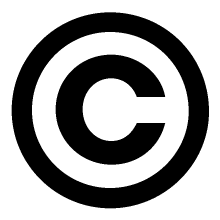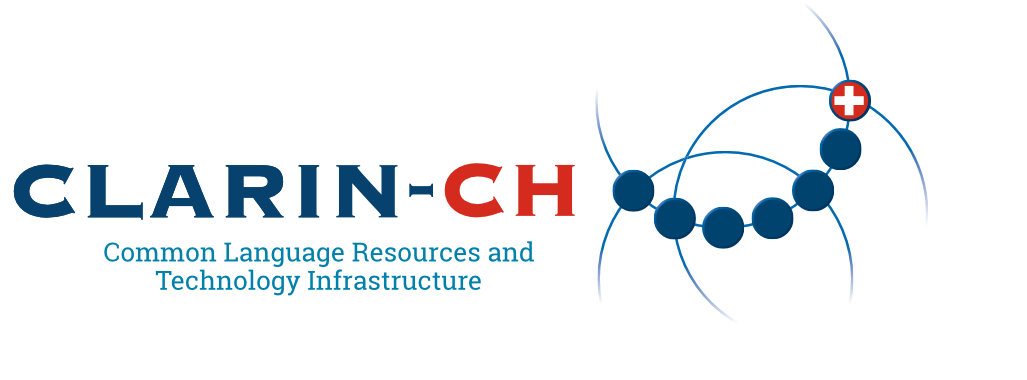Copyright
Copyright is a legal term used to describe the rights that creators have over their literary and artistic works. Copyright provides the holder with the exclusive right to reproduce, distribute, perform, display, or make adaptations of the work (commercial rights) and the right to be always identified as author (moral rights).

CC BY-NC 4.0
Copyright is designed to protect the original expression of an idea in the form of a creative work, but not the idea itself. Works covered by copyright law include, but are not limited to, novels, poems, plays, reference works, software, newspapers, advertisements, databases, films, musical compositions, choreography, paintings, drawings, photographs, sculpture, architecture, advertisements, maps and technical drawings. These creations must be the product of human effort and involve a deliberate alteration of reality. To qualify as original, a work must be the intellectual creation of its author. In that, copyright applies to both published and unpublished works.
Copyright and social media data
Social media texts are also copyright protected. In the case of X (Twitter), the authors of the tweets are the copyright holders. Nevertheless, by agreeing to Twitter’s Terms of Service (ToS), the authors of tweets grant the platform a very broad permission to reuse them for free on a non-exclusive basis.
“By submitting, posting or displaying Content on or through the Services, [the user] grant[s] [Twitter] a worldwide, non-exclusive, royalty-free license (with the right to sublicense) to use, copy, reproduce, process, adapt, modify, publish, transmit, display and distribute such Content in any and all media or distribution methods now known or later developed (for clarity, these rights include, for example, curating, transforming, and translating). This license authorizes [Twitter] to make [the user’s] Content available to the rest of the world and to let others do the same“.
from Twitter’s Terms of Service and copyright, as cited in Kamocki et al. (2021)
While crawling X (Twitter) is allowed, prior permission is required for scraping (i.e. extracting the data). Someone who would like to copy and share tweets can receive the necessary authorisation either directly from the user (which in most cases is unworkable in practice, given the sheer number of Twitter users) or from Twitter. In this vein, researchers should use the API for Academic Research to grant lawful access to tweets. For a detailed discussion about the possible strategies for using tweets as research data, read Kamocki et al. (2021).
Copyright exceptions
There are also exceptions to copyright regulated by national law. In Switzerland, there are several exceptions to copyright law:
-
Private use: This allows for the use of copyrighted works for personal purposes.
-
Citations: This allows for the use of quotations for purposes such as criticism or review.
-
Back-up copies and reporting of current events: This allows for the creation of back-up copies and the reporting of current events.
-
Teaching purposes: This exception allows for the use of works for a non-commercial purpose, as long as the source and the author are indicated.
-
Text & Data Mining for scientific research: Using copyright protected third-party data for research purposes may also fall under the European Directive on Copyright in the Digital Single Market (the DSM Directive), and in Switzerland, the Swiss Copyright Act (CopA) and its provision for text and data mining (TDM). This law rules the ‘right to mine’, i.e. the possibility to analyse copyright-protected material using digital methods without having to ask right holders for permission (and, usually, pay for it). According to this law, the conditions in under which researchers may mine copyrighted data and texts are: (i) lawful access to the data, (ii) use a technical process to copy and process the data, (iii) use the data for basic and applied research only. Importantly, data can be copied, stored, processed, backed up but not shared.
In contrast to some other European countries, the copyrighted material for this exception does not necessarily have to come from a lawful source.
Copyright usually expires automatically 70 years after the death of the author. Their works are then automatically public property (public domain).
Transfer of copyright
In some cases, parts of the copyright can be transferred to third parties. In academia, this is often done during the publication process when authors transfer their copyrights to a publisher with a copyright transfer agreement. If copyright is transferred, the author abandons their rights to the benefit of a third party.
In Switzerland, only commercial rights (the rights to exploit a work commercially) can be transferred but never moral rights (the right to be identified as the author of a work). However, some copyright transfer agreements nevertheless ask for the transfer of all rights.
Instead of transferring copyright, authors can also share their work with a license. If copyright is licensed, the author retains their copyright but grants user rights to reuse their material.
To read more about the topic, go to the following page: Licenses
Resources
-
CLARIN ERIC Legal Information Platform, especially
-
The explanation by the SNSF on copyright and licenses, also in connection to Open Access
Literature
- Hartmann, D. 2023, Text and Data Mining and Copyright in Switzerland and the European Union. FORUM. Stiftung, Bern / Helbing Lichtenhahn Verlag, Basel.
- Siegert, I., Varod, V.S., Carmi, N. and Kamocki, P., 2020. Personal data protection and academia: Gdpr issues and multi-modal data-collections. Online Journal of Applied Knowledge Management (OJAKM), 8(1), pp.16-31.
- * Kamocki P., Hannesschläger V., Hoorn E., Kelli A., Kupietz M., Lindén K. & Puksas A. (2021). Legal issues related to the use of Twitter data in language research. In M. Monachini & M Eskevich (eds), CLARIN Annual Conference Proceedings 2021. CLARIN Annual Conference Proceedings, CLARIN ERIC, Utrecht, pp. 150-153, CLARIN Annual Conference, 27/09/2021.
- Kamocki P. & Witt A. (2020). Privacy by design and language resources. In Proceedings of the Twelfth Language Resources and Evaluation Conference (pp. 3423-3427).
- CLARIN Café on Text and Data Mining Exceptions 2021 : https://www.clarin.eu/event/2021/clarin-cafe-text-and-data-mining-exceptions-directive-copyright-digital-single-market
- CLARIN Café on Text and Data Mining Exceptions 2022 : https://www.clarin.eu/event/2022/clarin-cafe-text-and-data-mining-exceptions-year-after-has-pony-become-horse
To learn more about the CLARIN normative layer and the work of the CLARIN Committee for Legal and Ethical Issues, please read this article:
-
Kamocki P., Kelli A. & Lindén K. (2022) The CLARIN Committee for Legal and Ethical Issues and the Normative Layer of the CLARIN Infrastructure. In CLARIN: The Infrastructure for Language Resources, edited by Darja Fišer and Andreas Witt, Berlin, Boston: De Gruyter, 2022, pp. 457-480.
